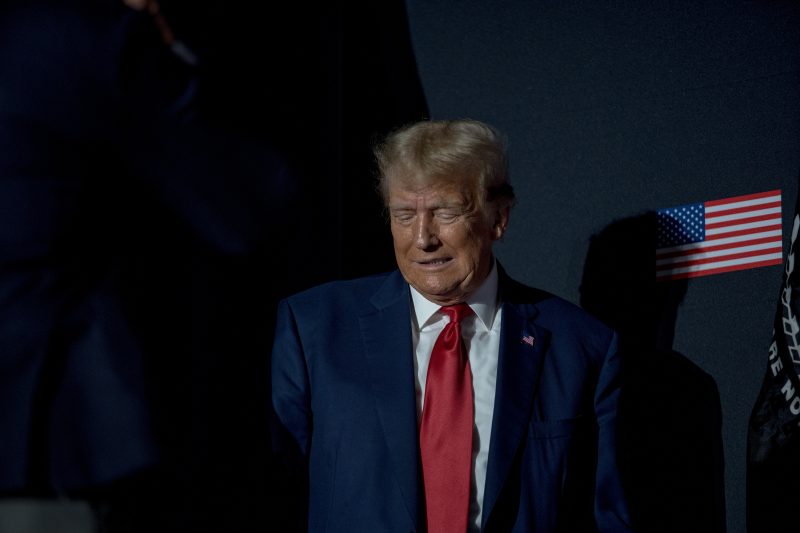Donald Trump and his most loyal allies have spent the better part of three years falsely claiming that not only was the 2020 election stolen, but that this was proved.
After his federal indictment over attempts to overturn the election, however — and with another indictment potentially headed his way in Georgia — the former president has seemingly undergone a subtle shift in his messaging.
He has begun to say that this is his opinion.
During a Newsmax interview Wednesday night, Trump added such a qualifier no fewer than six times in the space of 30 seconds.
“I’m telling them that, in my opinion, the election was rigged,” Trump said of the Jan. 2, 2021, call in which he urged Georgia Secretary of State Brad Raffensperger (R) to “find” just enough votes to overturn Trump’s deficit.
“I believe I won that election by many, many votes, many, many hundreds of thousands of votes,” Trump said. “That’s what I think.”
“That’s my opinion, and it’s a strong opinion,” he added. “And I think it’s borne out by the facts, and we’ll see that.”
To recap: “In my opinion.” “I believe.” “That’s what I think.” “That’s my opinion.” “It’s a strong opinion.” “I think.”
Trump’s rhetoric is, in one way, a reflection of his legal strategy. Special counsel Jack Smith devoted much of his 45-page indictment to the idea that Trump knew better about his wild claims of voter fraud in Georgia and elsewhere. In each of six key states, Smith pointed to Trump’s being told that a specific claim was false and then continuing to lodge it anyway, including in all six cases on Jan. 6 itself.
Smith’s argument will seemingly be that this helps prove that the entire effort was corrupt. Trump’s lawyers have signaled that they’ll argue, in turn, that Trump actually somehow believed these things. Trump allies have assisted in pushing that line.
But Trump’s legal team has also signaled that it intends to use the proceedings to re-litigate these claims. (Whether it actually does so is another matter; Trump’s claims were in many cases so laughable that few Republicans would echo them.) And Trump is hardly a shrinking violet when it comes to stating false things as unassailable fact.
It’s rare for Trump to couch his views of the 2020 election in this manner. He did so at one point on the then-private Jan. 2 call, but it was narrowly about the idea that ballots were being destroyed. “They are shredding ballots, in my opinion, based on what I’ve heard,” he said on that call.
And even as Trump was saying this, he was floating actual criminal charges for Georgia officials such as Raffensperger if they didn’t go along with what he wanted.
“It is more illegal for you than it is for [the supposed perpetrators] because, you know, what they did and you’re not reporting it,” Trump said. “That’s a criminal, that’s a criminal offense. And you can’t let that happen. That’s a big risk to you and to Ryan [Germany], your lawyer.”
While we should hardly expect Trump to back off his stolen-election claims, it’s a notable development in a long-running evolution for the GOP on these matters.
Trump’s lawyers have repeatedly disowned their own specific stolen-election claims in the face of legal pressure. Trump’s 2024 GOP opponents are increasingly saying, contrary to his claims, that he in fact lost the 2020 election. And while as many as 7 in 10 Republicans continue to tell pollsters that President Biden’s win was illegitimate, the share who say there is “solid evidence” of that has declined. About half of election deniers now say they’re going on “suspicion only.”
And Trump wasn’t the only one adding such caveats on Wednesday night. At the end of the interview, Newsmax, the Trump-loyal network which has been sued over its coverage of such claims and has repeatedly offered awkward disclaimers, added another one to the pile.
“All right folks, now just a note,” host Eric Bolling said immediately after the interview aired. “Newsmax has accepted the election results as legal and final.”
In other words: Even if they’re just Trump’s beliefs, we’re not endorsing them.








